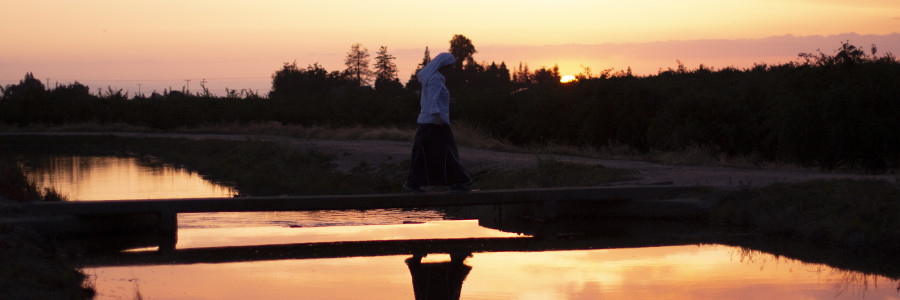Sister Kate isn’t your average cannabis farmer. Once a successful telecommunications consultant, Kate – known then as Christine Meeusen – was cheated and robbed by her husband, assaulted by her brother, and all but abandoned by her family. Homeless and penniless, she had nothing left.
But she wasn’t going to fade away without a fight.
“When people have everything taken away, you should be scared. Because they will do some radical shit.”
Radical is a fitting term for Kate’s fascinating journey, laid out as it is in almost unbelievable detail by Rob Ryan in his new documentary, Breaking Habits. Though why the film capably explores the circumstances through which a corporate executive became a marijuana distributor, its hazy justification of Kate’s motivation holds it back from greatness.
Kate runs her organisation, Sisters of the Valley, out of Merced County in California’s Central Valley. A bountiful region that never recovered from the 2008 Global Financial Crisis, poverty and crime now define the region. Kate herself has been shot at 14 times, mostly by black market dealers looking to steal her crop, but her biggest battle is with the powers that be. No, not God, but local law enforcement and political leaders who see the war on drugs as a work in progress.
Considering her opponents include such experts as Sheriff Warnke – whose argument for ensuring weed remains prohibited includes anecdotes such as “most people don’t like it” – and a priest who decries the (non-existent) addictive properties of the plant, Kate’s goal of securing a permit allowing her to farm without fear of legal prosecution is monumental. Still, with her sharp mind, activist’s heart, and an abundance of charm, she’s giving it everything she’s got.

It’s Kate’s charm that really takes centre stage in Breaking Habits, for better or worse. The title’s allusion to Breaking Bad, another story (albeit a fictional one) about a smart, business minded, empathy-eliciting individual who subverts the law in response to a personal crisis, is intentional, but Ryan seems to have forgotten that Walter White was the bad guy. Kate is no Walt, yet the distinction between their motivations remains murky for much of the documentary. In one sequence, Kate’s security team discusses her reaction to a shootout with would-be thieves. Instead of quickly harvesting what they could and leaving before the thieves returned with backup, Kate threatened to withhold pay from anyone who sought safety before every single leaf was accounted for. Ryan wants us to recognise Kate as a badass in this situation, but the fact she risked lives to maximise her yield is shocking, and seems very much out of character.
It’s only near Breaking Habits’ conclusion, when the Sisters hire a lobbyist to plead their case, that Kate’s situation is made clear. She is producing products from cannabidiol (CBD), a variant strain of cannabis that does not get users high like THC, and selling them to the terminally ill. When they can no longer afford it, the Sisters of the Valley still provide it for free.
Suddenly, Kate’s daring efforts make sense. The film mentions this endeavour early on, but it’s only when the lobbyist makes a casual comment to the camera that we realise it’s been the Sisters’ exclusive goal all along. Perhaps Ryan thought that was clear, but it isn’t, and the film suffers as a result. Sure, Kate is a fantastic subject, and the Sisters of the Valley a noble organisation, but it’s this one comment that elevates them beyond their criminal activity and will make audiences excited to support their work.
It’s a notable issue, but not one that should stop audiences from checking out Breaking Habits. Sometimes the truth is stranger than fiction, but that’s a fact that further highlights why the laws that keep people like Sister Kate in the shadows need to be revisited.
—
Breaking Habits is released in Australian cinemas on April 18th.
